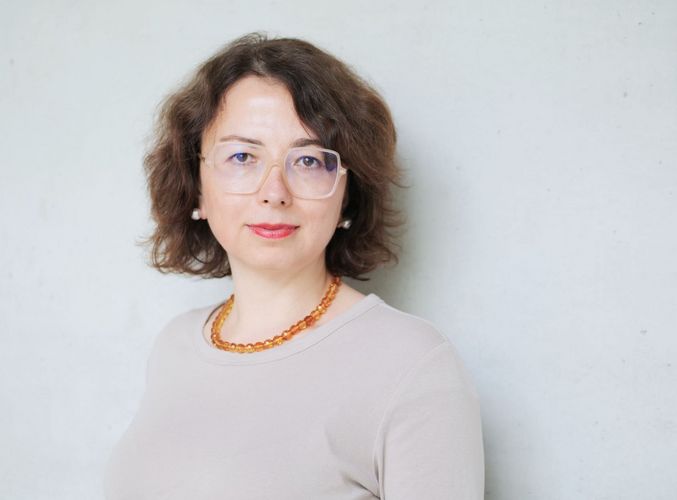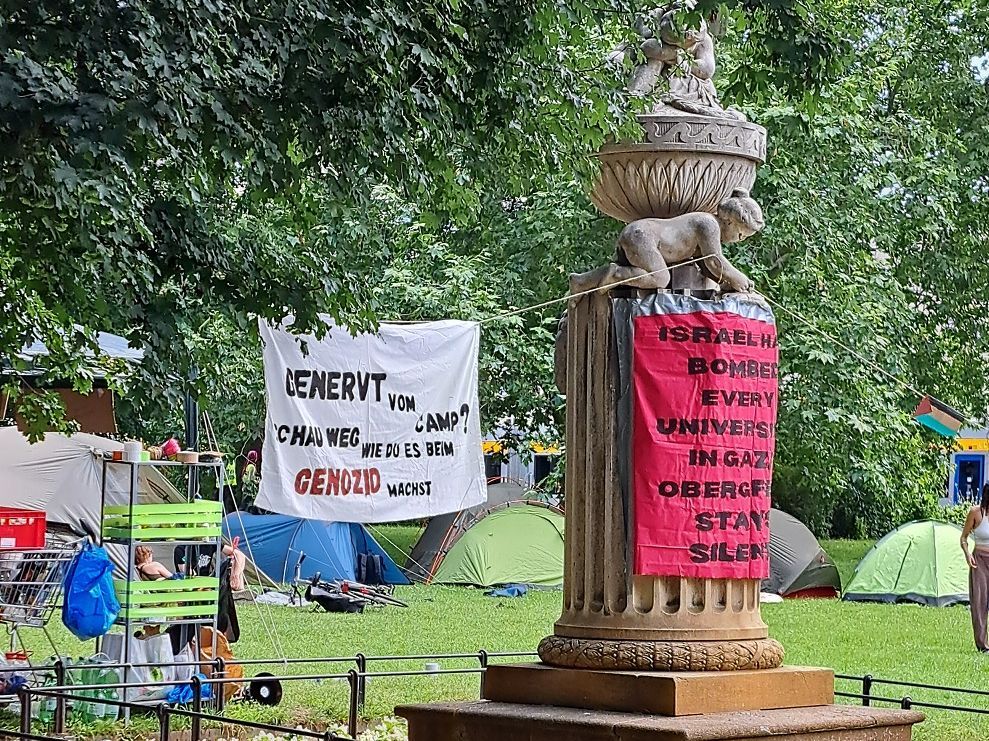Two camps seem to have formed in Western public opinion, showing solidarity either with Israel or with the Palestinians. Could history help explain this?
Professor Dirk van Laak: History and the culture of remembrance play a key role in such issues, as they almost always do. Germany is, of course, particularly influenced in this respect, even if a comprehensive awareness of the exceptional nature of the Shoah has only developed since the 1980s. In the 1950s, Chancellor Konrad Adenauer forced through a reparations agreement with Israel against the will of the majority of West Germans.
During the phase of decolonisation, especially after the Six-Day War in 1967, the thesis that Israel was an imperialist state and a kind of Western ‘settlement colony’ in the Arab world became firmly established in West German left-wing circles. This then implied solidarity with the displaced and ‘oppressed’ Palestinians. This critical attitude towards Israel was also a state doctrine in the GDR until it began to be relaxed in the late 1980s.
For some time now, there has been a debate about whether the Holocaust should be placed more in the context of other genocides, such as colonial genocides. This is also happening, although the uniqueness of the state-sanctioned persecution and systematic murder of Jews in the Third Reich has yet to be overturned. Today, discourse trajectories are very difficult to identify and are laden with all sorts of things that can no longer be substantiated by historical knowledge.
How are the massacre of 7 October and the war in Gaza being discussed in Poland? Are there any differences to the debate in Germany?
Professor Anna Artwinska: As in Germany, there is no uniform debate on the Middle East conflict in Poland, but rather a variety of voices, opinions and positions that cut across society. Comparing these debates with those in Germany, it is clear that, despite many differences that can be traced back to the respective historical pasts of the two countries, similar ‘pro-Israel’ and ‘pro-Palestine’ lines of argument are being used in Poland today.
The conflict in the Middle East shows just how globalised society has become. Transnational alliances and groups can be observed, for example, among some left-wing groups who see Israel as a ‘colonial state’, or among student protesters. However, since Israel’s existence is not a raison d’état in Poland as it is in Germany, criticism of Israel is often – to generalise somewhat – more vehement and direct.
The debates about the Gaza war are also intertwined with those about violence and pushbacks on the Polish-Belarusian border, although the arguments are not made from a historical perspective but from the perspective of human rights violations. On the other hand, Poland was home to some 3.4 million Jews before the Second World War, and many Israelis have Polish roots. This is not without influence on the perspective from which the conflict is viewed – again, of course, only in certain circles.
To what extent does the Holocaust shape the view of the Middle East conflict in Eastern Europe?
Artwinska: In the 21st century, an intensive process of coming to terms with the Holocaust is taking place in the cultures of Eastern and East Central Europe. It emerges that Polish society, for example, which likes to think of itself as the most righteous of nations, was also an accomplice during the Holocaust. At the latest since the publication of Jan Tomasz Gross’ “Neighbors: The Destruction of the Jewish Community in Jedwabne, Poland” (2001), it has become clear that Polish society must also come to terms with its own history of collaboration and the handing over of Jews to the Nazis. However, this remains an uncomfortable truth that many are reluctant to admit.
The conflict in the Middle East has unfortunately rekindled latent anti-Semitism in Poland. I see anti-Semitic statements from both the political ‘right’ and the ‘left’, both in mainstream newspapers and on social media. This is not to say that all Poles are anti-Semitic, but an unaddressed history of anti-Semitism can mean that anti-Semitic sentiments are passed on more easily and with impunity.
The situation is different in the Czech Republic, where most Jews were German-speaking and more integrated into Czech society before 1939. Of course, anti-Semitism also existed in the Czech Republic, but to a different extent than in Poland. This means that the Holocaust has less influence on perceptions of the Middle East conflict in the Czech Republic. Incidentally, the Czech Republic voted against the UN resolution on an immediate ceasefire in the Gaza Strip in the autumn of 2023.


